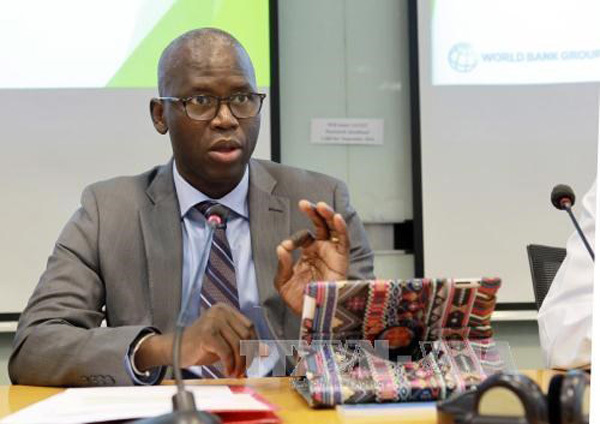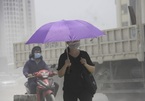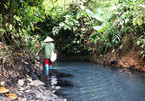There were days when Hanoi’s air pollution was among the worst in the world, with environmental authorities reporting that levels of PM 2.5 – tiny air particles - had reached a five-year high.
As soon as Hanoi’s skies were clear of hazardous haze, the city was hit by another incident: tap water from the Da River was found to be contaminated, causing a major water shutdown affecting about 1 million people.
 |
| Ousmane Dione, Country Director for the World Bank in Vietnam. |
Air, land and water pollution can severely affect people’s health. A deteriorating environment significantly jeopardises a city’s livability and its competitiveness. Failure to keep pollution under control also undermines people’s confidence in institutions and systems.
What can the Government do to tackle pollution and pursue greener growth? We suggest adopting a P-R-I-M-E action plan (Planning, Resources, Information, Management and Enforcement).
• Planning is paramount and needs to be done right because it sets the strategic direction of future growth and development for years to come. Urban planning should identify the gap between existing infrastructure and future demand.
• Resources should be allocated for adequate investment in essential infrastructure services. The reason why wastewater collection and treatment has not kept pace with urbanisation and industrialisation in Hanoi is partly due to the vast financing gap the water and sanitation sector is facing, which is estimated at approximately US$1.7 billion or VND39.4 trillion per year.
• Information is critical because you cannot manage what you cannot measure. There is an urgent need to build credible, easily accessible to the public and transparent databases on different types of pollution.
• Management should cover all sources of pollution, whether it comes from a single place – point source (i.e.: discharge pipes) or from a wide area – non-point source (i.e: storm water runoff).
• Enforcement should be strengthened. In cases where fines are deemed ineffective, enforcement could be done through criminal sanctions.
But combating pollution is not only the Government’s responsibility. Pollution spares no one, so everybody needs to help keep our environment clean.
We know that countries deal with periods of high level of pollution at some point in their growth, and there are many lessons that they can share with each other. Development partners like the World Bank are in a strong position to facilitate knowledge transfer and bring in international experiences to help policy-makers make informed decisions about where to invest and how to address growing pollution. Such experience and knowledge can help tailor solutions to Vietnam’s context.
The transition to a greener economy presents tremendous opportunities for partnerships between the public and private sectors in meeting the increasing demand for environmentally-friendly goods and services.
Meanwhile, some of the worst polluters are in the corporate sector. As regulations tighten, enforcement strengthens, and consumers become more environmentally conscious, it is in the firms’ interest to improve their environmental performance and regulatory compliance.
As citizens and consumers, we can make wise choices in assessing the environmental footprint of brands by choosing eco-friendly products and buying from eco-friendly producers and manufacturers.
Imagine the big difference we could make if we all made greener lifestyle choices? Did you know the amount of plastic waste per capita in Vietnam increased from 3.8 to 41.3kg in less than 20 years? That is a staggering statistic, but we can help reverse this by reducing the amount of waste we generate - particularly by replacing single-use plastic with reusable products, recycling whenever possible, and conserving energy.
We need to move away from ‘business as usual’ and be the change we want to see, from how we develop the economy, design cities and produce goods, to the daily choices we make about what we eat, buy, or how we travel. Keeping cities clean and green is our collective responsibility. Together we can do it!

Hanoi warned of severe air pollution
Hanoi experienced serious air pollution over the last few days.

Hanoi's water pollution unable to be treated for now
Vinaconex Water Supply Joint Stock Company (Viwasupco), which purifies water to supply for a large part of Hanoi, did not clean the contaminated water but isolated it.
Ousmane Dione
Country Director for the World Bank in Vietnam
VNS
 In the past two months, citizens of Hanoi were struck by unsafe levels of pollution in the city’s water and air - two of life’s essential ingredients.
In the past two months, citizens of Hanoi were struck by unsafe levels of pollution in the city’s water and air - two of life’s essential ingredients.